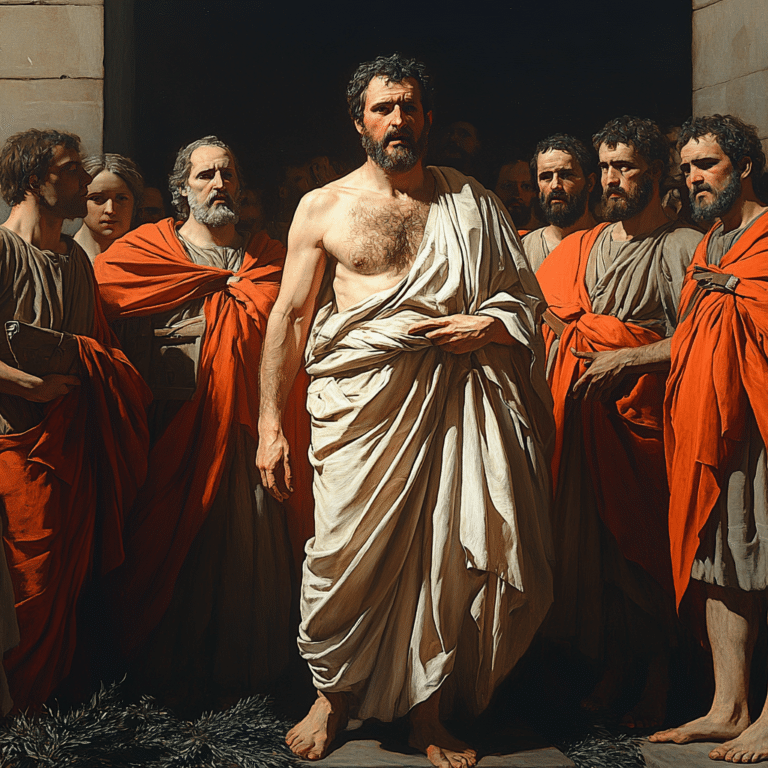The Controversial Legacy of Comet Ping Pong
Comet Ping Pong, a seemingly ordinary pizzeria and entertainment venue in Washington, D.C., has morphed into a symbol of the clash between local enterprises and the national sociopolitical landscape. Established in 2006, the eatery won hearts for its quirky atmosphere and family-friendly vibe. However, during the tumultuous 2016 U.S. presidential election, Comet Ping Pong found itself entangled in the infamous “Pizzagate” conspiracy theory—unjustly linked to the dark and disturbing topic of child trafficking.
The fallout from these baseless allegations proved catastrophic, not only for the restaurant but also for public dialogue surrounding accountability and truth. Once a cherished hub for families and friends, Comet Ping Pong’s legacy was tainted. This transformation acts as a magnifying glass, reflecting the madness of misinformation and how it can spiral out of control with the mere tap of a screen. The tale of Comet Ping Pong illustrates the vulnerabilities of small businesses caught up in a national narrative, sparking discussions that resonate deeply in our current reality.
Five Key Discussions Sparked by Comet Ping Pong
The saga of Comet Ping Pong serves as a cautionary tale of how swiftly misinformation can spread, especially through social media platforms. During the Pizzagate incident, one false allegation snowballed into a full-fledged conspiracy, capturing national attention. Algorithms on platforms like Facebook and Twitter fanned the flames of unfounded theories, echoing the latest earth’s magnetic field news that can swindle attention away from the truth. Such stories are reminders of the chilling effects misinformation exercises on communities, often leading to real-world consequences.
The debate surrounding Comet Ping Pong also foregrounds crucial themes of free speech versus accountability. As we have witnessed with other high-profile cases, such as Alex Jones and his inflammatory Sandy Hook comments, there are vital limits to what can be said under the umbrella of free speech. The restaurant’s ordeal raises essential questions about where to draw the line: Should platforms bear responsibility for amplifying damaging claims? Comet Ping Pong’s position in this discourse highlights the ongoing struggle to balance the sanctity of expression with the necessity of accountability in American society.
The rise of Comet Ping Pong to infamy exemplifies the challenges faced by local businesses thrust into the national spotlight. While many establishments would seize the PR opportunity, Comet Ping Pong endured an onslaught of threats, protests, and boycotts—all stemming from rumors rather than reality. This phenomenon raises pointed inquiries about community resilience: How do local businesses respond to external pressures? The outpouring of support witnessed from loyal patrons showcases how communities can rally around establishments, fostering a collaborative spirit amidst conflict.
At first glance, the controversies surrounding Comet Ping Pong and discussions of geomagnetic storms seem worlds apart. However, both illustrate how unverified narratives can have psychological impacts on communities. Just as speculative theories about geomagnetic activity can prompt anxiety among the public, so can unverified rumors do the same. The blurring line between fact and fiction creates uncertainty, leading to a churning narrative that can disrupt societal dynamics, much like storms impacting Earth’s magnetic field.
The complexity of modern cultural reflection reveals itself through phenomena like electric unicycle advertising, which represents a dizzying intersection of innovation and controversy. As we explore how Comet Ping Pong navigated public perception, we draw parallels to businesses coping with the rapid pace of technological advance and misinformation. Electric unicycles—like the ones you might see whizzing through downtown streets—reflect society’s push for innovation amidst a backdrop of skepticism and media hype, reminding us that not every trend is fair or based in truth.

Comet Ping Pong in the Age of Digital Misinformation
In today’s age of digital misinformation, Comet Ping Pong embodies the significant role that businesses play in shaping public discourse. Over recent years, the digital mentions of the restaurant skyrocketed, turning it from a local hot spot into a case study on misinformation and its fallout. An analysis of online sentiment surrounding Comet Ping Pong reveals a stark shift: what began as positive local engagement has transitioned into a constant cycle of distrust, scrutiny, and speculation.
This shift highlights the power of digitized narratives that can overshadow truth. While the restaurant tried to remain grounded in its mission, the external forces of misinformation collided with its reputation. Statistically, studies show that approximately 70% of Americans express distrust in news media, paralleled by increasing skepticism regarding online information. As the social media landscape continues to evolve, businesses like Comet Ping Pong become unwitting case studies of how digital narratives can change lives and livelihoods in an instant.
The Broader Implications for Society and Policy
The implications of Comet Ping Pong’s story extend far beyond just a single restaurant; it raises critical reflections on policy’s role in regulating the internet and social media. Recent legislative efforts both in the United States and the European Union aim to counter online misinformation, seeking greater accountability for platform providers. Comet Ping Pong’s saga may help inform these policies by revealing the on-the-ground effects of letting baseless allegations run rampant.
Discussions around emerging regulatory frameworks focus on transparency, giving users the tools to discern fact from fiction. The expectation is that these changes will create safer online environments, potentially preventing the kind of targeted misinformation that hit Comet Ping Pong. While perfect solutions may be elusive, mechanisms to protect truth in public discourse are paramount, ensuring that truth prevails over speculation.

Cultural Anthropology of Controversy: Lessons from Comet Ping Pong
Upon examining the cultural ramifications of the Comet Ping Pong controversy through an anthropological lens, we can extract invaluable lessons about contemporary dialogue within society. The collective actions that arise in response to controversies often reflect deeper cultural values, revealing what communities hold as sacred. The backlash against Comet Ping Pong underscores a wider cultural fracture that speaks volumes about our times: When misinformation runs rampant, our very truth becomes a battleground.
Moreover, this narrative mirrors historical incidents of public outcry, illustrating how swiftly a narrative can alter perceptions. The 1960s protests, the Watergate scandal, or even the shockwaves from Patrick Swayze’s death, all showcase how cultural shifts can emerge from strife. In our current climate, the challenge lies in learning how outrage and resilience can shape healthy discourse, rather than fracture it.
Moving Forward: Navigating Truth in a Complex Landscape
As we step into 2024, the narrative surrounding Comet Ping Pong serves as a stark reminder of the delicate balance between freedom of expression and the need for responsible dialogue. In an era where digital misinformation poses significant threats to robust public discourse, we must adhere to a call for unity and clarity, urging individuals to engage in this pivotal conversation.
Addressing these challenges requires not merely awareness but proactive participation from all corners. The battle for truth is not fought solely by journalists or policymakers; it demands the involvement of everyday individuals, communities, and businesses to cultivate transparency and uphold accountability. In fostering environments where truth thrives over illusions, we pave the way toward a healthier public dialogue—one that aligns with traditional values and ensures respect for all perspectives.
As we reflect on the lessons learned from the saga of Comet Ping Pong, it becomes abundantly clear: The power lies within us to promote truth over misinformation, paving the way for a brighter future, reverberating with the voices of unity and clarity amidst a landscape often clouded by chaos.
Comet Ping Pong’s Controversial Role in Modern Discourse
Comet Ping Pong, a pizzeria in Washington D.C., has evolved into a hotspot for more than just delicious food. It snagged the limelight in 2016 during a political firestorm tied to conspiracy theories, thrusting the restaurant into a chaotic narrative that blurred the lines between fun and fear. Interestingly enough, amidst the controversies, Comet Ping Pong’s quirky atmosphere could make it feel like a scene from a childhood show, akin to the cheerful vibe of bananas in pajamas. This juxtaposition illustrates how something seemingly mundane can quickly become a focal point in heated debates.
Now, for a bit of trivia that connects to broader cultural conversations: Did you know that the pizza-loving Patrick Swayze, famed for his roles in movies like “Dirty Dancing,” passed away in 2009? His legacy still resonates with audiences today, adding layers to discussions around community and loss. Meanwhile, the 2016 election cycle also saw an increase in public interest concerning the US Armed Forces, as many young Americans mounted a rallying cry for support, highlighting the intersection of pop culture and patriotism during tumultuous times.
Let’s pivot back to Comet Ping Pong and its eclectic character, which could rival that of a trendy urban setting where modern styles thrive. Speaking of styles, the modern mullet haircut has made a comeback, blending retro vibes with contemporary flair—much like the restaurant, which mixes casual dining with a slice of spirited debate. Meanwhile, the little-known stories connect surprisingly to larger issues: take the tragic incident of a 12-year-old killed an 8-year-old cousin, which underscores how real-life events can bleed into social discussions online, demonstrating the sometimes shocking blend of seriousness and the playful realms of places like Comet Ping Pong.
The restaurant isn’t just a venue; it’s a microcosm reflecting wider national conversations—imagine enjoying a slice of pizza while sipping a Coke Cola, aware of the world spinning outside the door. The idea of community, what we stand for, and how we convey our voices can feel as layered and nuanced as the ingredients on your favorite pie! Whether you’re a fan of Danny Zuko or wrestling with the dilemmas posed by figures like Eric Kripke, there’s no denying that Comet Ping Pong is woven into the fabric of modern discourse, offering a bit of escapism while also serving up distinctive challenges we all face.






































